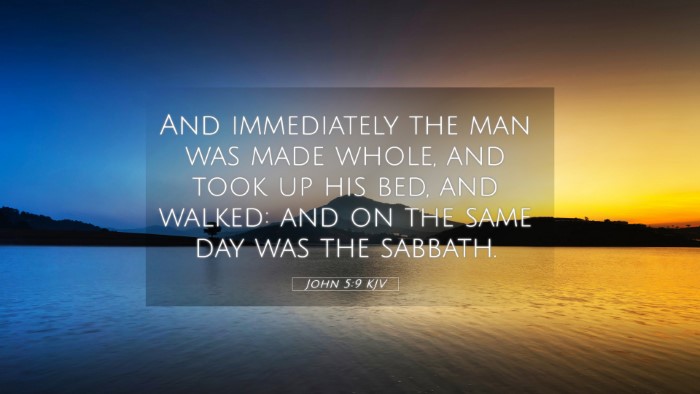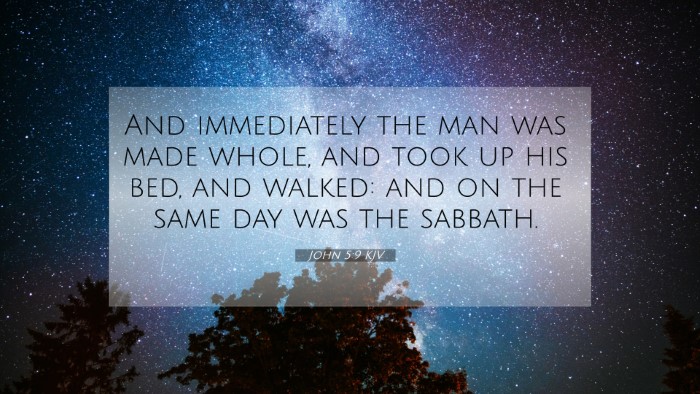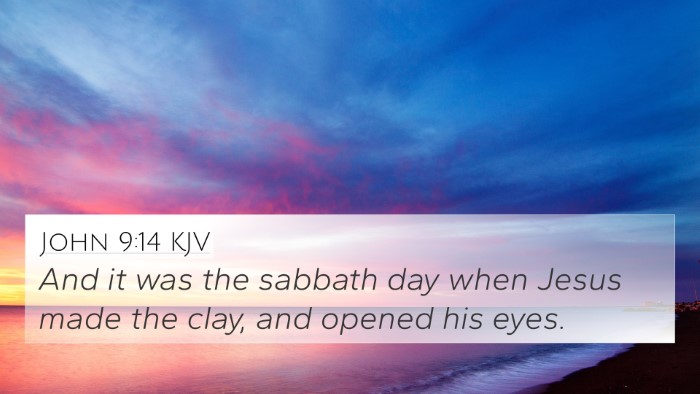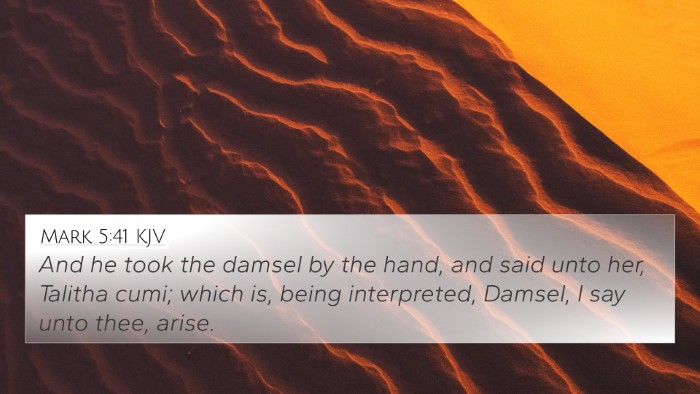Understanding John 5:9
John 5:9: "And immediately the man was made whole, and took up his bed, and walked: and on the same day was the sabbath."
This verse encapsulates a miraculous event performed by Jesus, where He heals a man who had been infirm for thirty-eight years, signifying a profound thematic connection between physical healing and spiritual renewal.
Summaries and Insights from Public Domain Commentaries
The healing of the impotent man demonstrates Jesus' authority over physical conditions and His compassionate nature towards human suffering.
- Matthew Henry: Henry notes that the healing is immediate and complete, illustrating Jesus' power. The act of the man taking up his bed symbolizes a shift from his previous condition of infirmity to both physical and spiritual liberation.
- Albert Barnes: Barnes emphasizes the significance of the Sabbath and the implications of performing work on this holy day. He suggests that the healing triggers a conflict between Jesus and the Jewish authorities, demonstrating a deeper message about the true purpose of the Sabbath—mercy and restoration.
- Adam Clarke: Clarke points out the man’s initial disbelief and ignorance regarding who healed him. This highlights the theme of spiritual blindness that can occur even in the presence of miraculous acts. Clarke also discusses the importance of faith in receiving healing.
Connections to Other Bible Verses
John 5:9 can be contextualized within various scriptural narratives, enriching our understanding of its implications through inter-Biblical dialogue. Here are several related verses:
- Luke 14:3-6: Jesus heals on the Sabbath, highlighting the conflict regarding works on this day.
- Mark 2:27: "The Sabbath was made for man, and not man for the Sabbath," underscoring the principle of mercy in the law.
- John 9:14: The healing of a blind man on the Sabbath also presents similar themes of conflict and divine authority.
- Isaiah 58:13-14: Offers insight into the true observance of the Sabbath as a day of joy and freedom.
- Matthew 12:10-12: Here, Jesus again confronts the idea of performing good deeds on the Sabbath, affirming the priority of compassion.
- James 5:14: Discusses the healing of the sick, reflecting overarching themes of faith and healing within the Christian community.
- Hebrews 4:9-10: Speaks to the Sabbath rest associated with spiritual salvation, drawing parallels between physical and spiritual healing.
Importance of Cross-Referencing Bible Verses
Cross-referencing Bible verses is vital for a deeper understanding of the Scriptures and for viewing them as a cohesive narrative:
- Tools for Bible cross-referencing: Utilize a Bible concordance or cross-reference guide to identify similar themes and teachings.
- Cross-reference Bible study: Encourages engagement with Scripture on multiple levels, drawing connections between different passages.
- Understanding Biblical themes: By exploring thematic connections, one can uncover a rich tapestry of Biblical truths that illuminate one another.
Conclusion
In summary, John 5:9 exemplifies not only a significant miracle but also serves as a touchstone for discussions on faith, the law, and divine authority. By engaging with cross-referenced verses, readers can see how this narrative fits into the larger Biblical context, thus deepening their understanding of Scripture. This holistic approach enhances our ability to study the Bible comprehensively, reflecting on how the themes of healing and grace permeate both testaments, and guiding us to a fuller revelation of God's heart for humanity.















